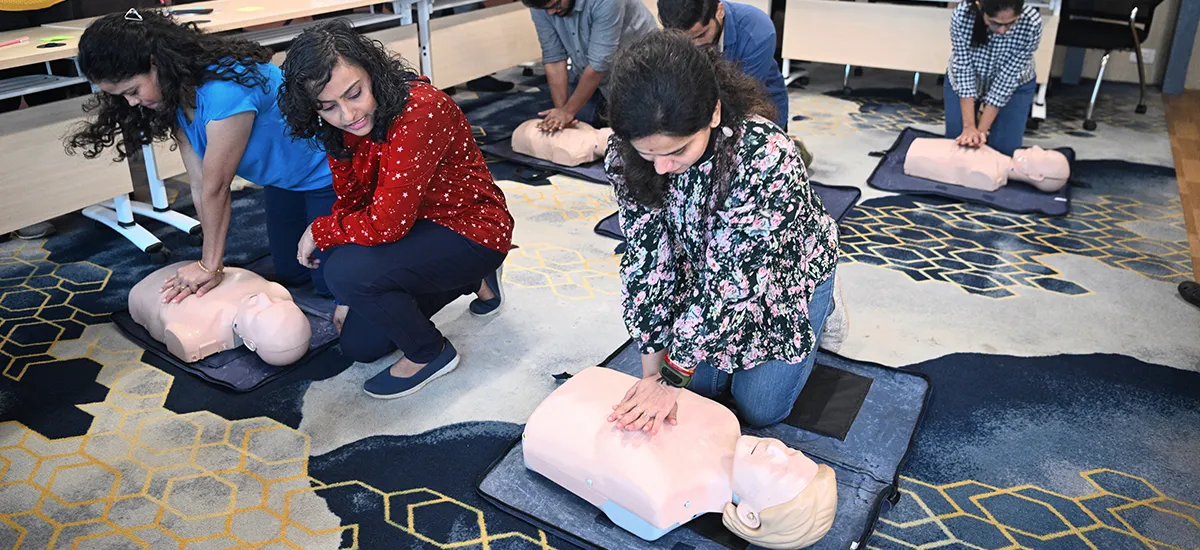Mental health needs a great deal of attention. It's the final taboo, and it needs to be faced and dealt with. – Adam Ant
Adolescence is generally considered the age where people experience the most significant upheaval of their lives - physiologically and psychologically. Together, both of these can lead to many issues in the youth that often go unnoticed and untreated. It is also when preteens and teens are the most vulnerable and least open to asking and accepting help.
In this article, we discuss the dual aspect of mental health awareness in preteens and teens:
- The mental health issues experienced by the adolescents
- The initiative from society as a whole to make the youth and ourselves aware
Mental Health
As physical health is related to the well-being of a person's physiology, mental health is referred to one's emotional, social and psychological well-being. And the same as a person's physical health can be categorised as good or bad at any given time, mental health can be too. Unwell mental health is a state of being that affects an individual's everyday routine and behaviour. At the bare minimum, it is necessary to make the general populace aware of mental health issues, that the problems people face are real, and not just made-up fiction to give excuses for any out-of-the-ordinary behaviour.
How to Increase Mental Health Awareness
- To create an accepting environment where mental health problems are not a taboo topic but rather a subject as normal to talk about as any physical health issues.
- To advise the society to recognise the symptoms of mental health problems, the generalised and specific ways to help, and where to search for professional help.
- Putting an end to the stigma attached to mental health issues.
- Let those suffering from mental health issues know that they are not alone; they are not helpless; their problems are valid, and they are entitled to receiving help and treatment as any physical ailment does. They should realise that having mental health problems does not make anyone crazy.
Common Mental Health Problems Faced by Adolescents
Anxiety
Anxiety refers to uneasiness or distress caused by stressful situations resulting in fear and panic. The amount of stress required to cause anxiety varies from person to person, sometimes increasing to the levels of the fight-or-flight response, resulting in anxiety attacks. The anxiety attacks can also cause physical problems such as heaviness in the head, stomachaches, sweating, shaking and tremors, short breath, hyperventilating, racing heartbeat, dizziness, etc.
Depression
It is considered a type of mood disorder where a person feels gloomy most of the time. It is challenging to recognise depression in a person as their outward behaviour in daily lives could range from actually projecting their sadness to being extremely cheery outwardly despite feeling depressed.
ADHD
Attention Deficit Hyperactive Disorder is quite common among children and manifests early in childhood. It has physically recognisable symptoms such as difficulty sitting still, inability to stop talking, problem finishing a project, easily distracted, lacking focus, etc.
Eating Disorders
Eating disorders such as bulimia and anorexia are pretty common among teens. Usually, teens start altering their food habits because of peer pressure, body shaming, derogatory behaviour from people around them, and an urge for a perfect figure and body. It causes eating disorders, leading to a lack of nutrition, which then hampers physical growth more.
Oppositional Defiant Disorder
Generally considered an act of rebellion and acting out in teens due to the hormonal changes, Oppositional Defiant Disorder can be recognised through physical and verbal aggression, violence, extreme defiance, rule-breaking etc.
Common Causes Behind Adolescent Mental Health Issues
Family: Any kind of turbulence in the family dynamic and relationships profoundly impacts the psychology of children and can adversely affect their mental health.
Peer Pressure: The inevitable urge to fit in, to be considered cool, and to be accepted in popular circles could lead to behaviour changes, leading to mental health issues.
Perfectionists: Expecting too much from self or carrying someone else's expectations and failing to meet them often results in mental health problems.
Authority Figures: More often than not, an unreasonable authority figure is a crucial reason behind most teen mental health issues.
Social media: The glamour of social media is extremely attractive, and adolescents usually try to imitate what they see through the lens in real life. Falling short of those standards often leads to many mental health problems.
Signs and symptoms of mental health problems
- Difficulty sleeping
- Over-sleeping
- Changing eating habits
- Severe mood swings
- Drastic changes in weight
- Extreme irritability
- Avoiding social interactions
- Missing school
- Sudden behaviour or personality changes
How to help
The first step is recognising and accepting the problem. Be open to discussing the issue in a strictly non-judgemental, non-accusatory manner, and listen to the details to pinpoint the root of the problem and find a solution.
When a youth is exhibiting deviant behaviour, it is the responsibility of the authority figure to find out the reason behind said behaviour before issuing appropriate punishment.
Seeking help from a professional psychologist is a truly tried and tested method when it comes to mental health issues.
Long term consequences
This is the age most susceptible to mental health issues where youths are led astray, falling victim to drugs, substance abuse, etc., resulting in severe consequences. However, if they are aware of the mental health issue and its implications, they can avoid being trapped in it by developing healthy habits from the beginning.
The habits and behaviours are firmly established during adolescence and are carried over to adulthood. And, it becomes extremely hard, if not impossible, to change habits and behaviours in adulthood. Hence, it becomes necessary to build healthy habits and behaviours from the teen years.





































